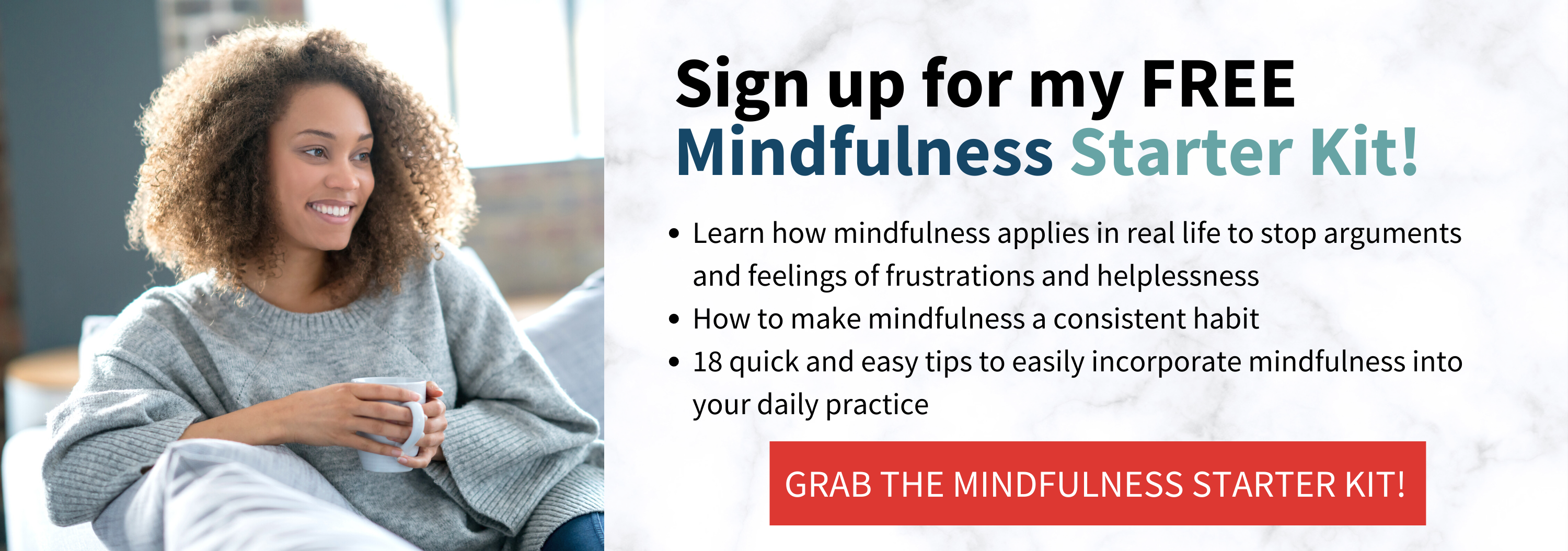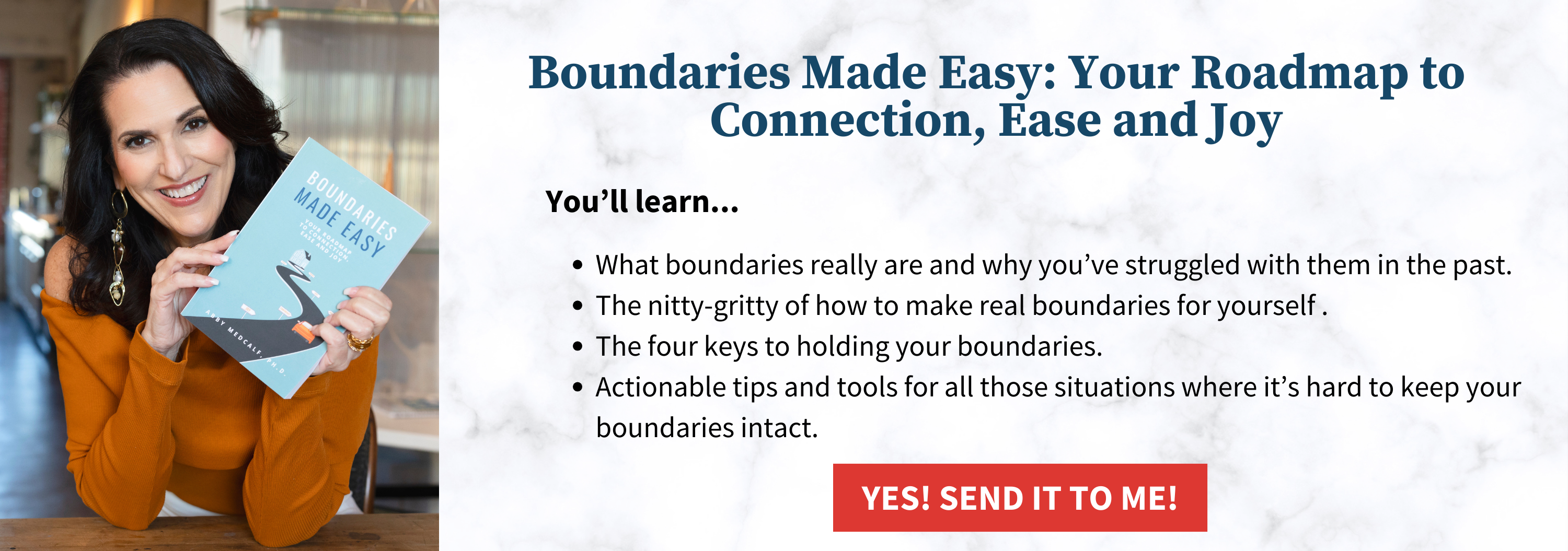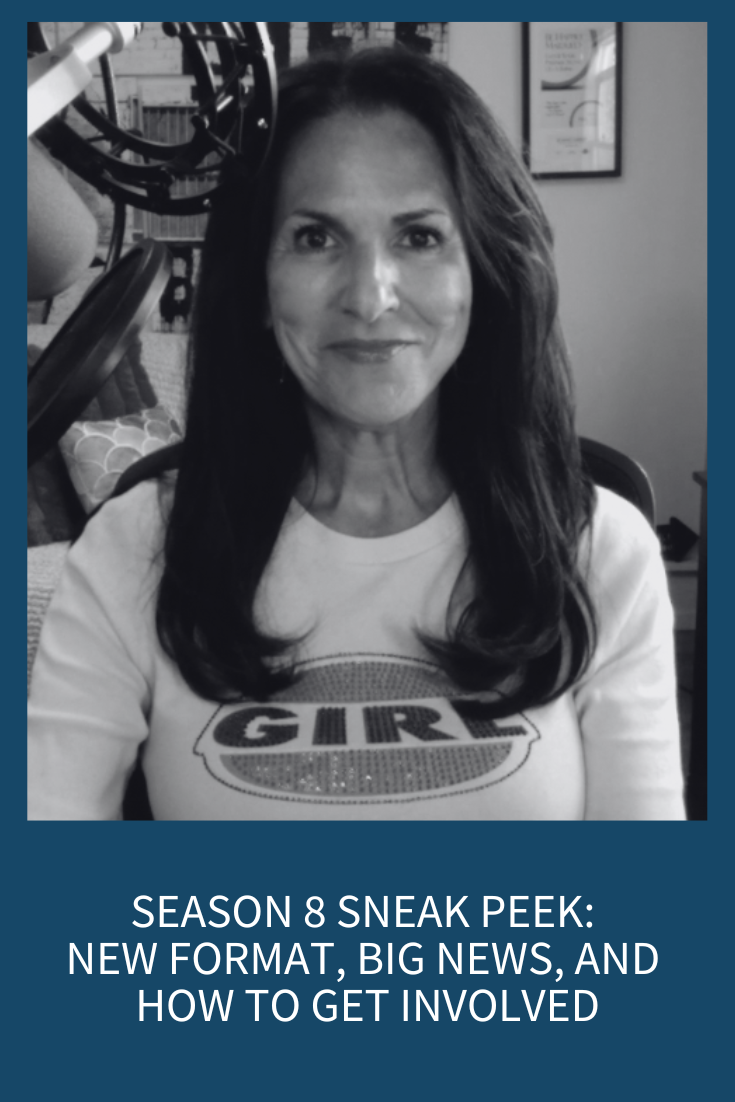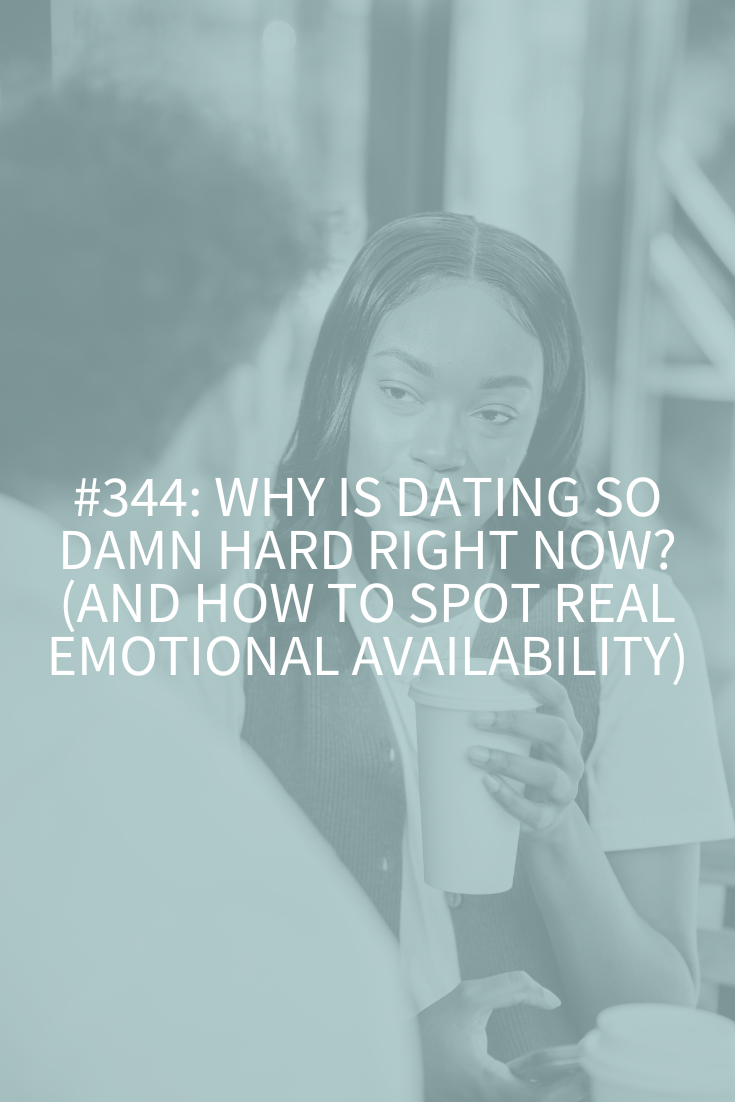
It’s healthy and normal to get frustrated or angry from time to time. However, it’s not healthy or normal to feel frustration and anger on a daily basis. This means your frustration tolerance is too low and it’s time to develop some much-needed skills so you can feel more peaceful and connected with yourself and those around you. Today I’m teaching you my top five strategies to stop feeling frustrated and angry in all your relationships.
12-minute read
Why You’re Frustrated and Angry
You might not like hearing this, but the reason you’re frustrated and angry with anyone else has 100% to do with you and zero to do with them. Whaaaaattttt?!?!?!? Now, before you get too bent out of shape, let me say that I’m telling you this for your own good. I’m telling you this because if your answer to not feeling this way is for other people to change, you’re going to be frustrated and angry for the rest of your life. And I don’t want that for you.
Frustration is your emotional response to stress, an obstacle or an expectation not being met. You feel frustrated when you’re hanging onto control and not detaching from outcomes. The reason you’re feeling frustrated and angry all boils down to you trying to change or control other people or situations. Today is going to be all about teaching you how to let go of this need to be right and control and focus on acceptance and compassion instead.
The research shows that not dealing with being consistently frustrated and angry leads to longer lasting problems such as aggression, depression, low self-esteem, and unhealthy coping mechanisms like abusing food, alcohol, and drugs. So, it’s time to get very motivated to change this pattern of thinking and feeling.
Low Frustration Tolerance
No matter how long this has been an issue for you, having a low tolerance for frustration in your life isn’t some kind of permanent personality trait. Instead, frustration tolerance is a skill that’s learned (or not). Having a higher tolerance for frustration means that you can sit with negative or difficult emotions with self-awareness and control of your other emotions. These are people who have learned not to see everything as a frustration (such as those with a more growth mindset). These are people who have learned to be mindful and can put on the pause button when it comes to upsetting situations.
Here are my top five strategies to stop feeling frustrated and angry in your relationships.
Strategy #1: There are Only Preferences
The first thing to understand is that there’s no right or wrong, only your preferences. The mistake you’re making is in thinking that the way you want something done is the right way, therefore, others should be doing it that way. This sets you up for being frustrated and/or angry.
It’s 100% OK for you to like something done a certain way, but it’s 100% not OK for you to demand that others do things the way you want (just as it’s not OK for them to demand that you do things the way they want). I want you to think about how many things you’ve determined are facts or true that your partner, mom, or coworker might disagree with. Some examples are:
- People choose to be gay
- Being a stay-at-home parent is easier and less stressful than working a corporate job, answering to a boss and commuting every day
- Daycare is bad for kids
- Pornography is the same as cheating
- Pornography isn’t the same as cheating
- The correct position for the toilet seat is down
- Everything must be handed in by the deadline
- The dishes should be put away every night
- Kids shouldn’t spend more than 20 minutes per day on screens
Now, let me be clear. You might have research to back you up. For example, there’s proof galore that there are many negative effects for young children who spend too much time on screens from an early age. However, this doesn’t make it right for you to decide that your kids won’t watch YouTube videos if your partner disagrees. I mean, I could also show you scientific proof that there are many negative side effects for kids if they eat any amount of sugar or preservatives, but would you deny them an occasional dessert or piece of their own birthday cake?
There is no absolute wrong or right because it all boils down to what you prefer or what you’ve decided is OK. In this case, maybe you’ve decided desserts once a week are fine, but YouTube isn’t. This is your preference only; you’re not right just because you’ve justified it to yourself.
Or maybe you like to save money, and your partner likes to spend money. You’ve likely said that you’re a “saver” and they’re a “spender.” The problem is that you absolutely spend money too! Everyone in a relationship is a spender! It’s just about what you’ve decided it’s OK to spend money on! Again, it’s all about your preferences.
Linked closely to this is assigning meaning or defining what someone else does or doesn’t do. If your partner leaves their dishes out and you put them in the dishwasher, it doesn’t mean they think you’re the maid. If your coworker doesn’t get the spreadsheet to you in a timely manner, it doesn’t mean they’re an asshole. In these situations, I want you to remember that you have preferences (aka: you’re not right), and ask yourself some questions instead of getting frustrated or angry:
- “What’s triggering me here?”
- “What does this remind me of?”
- “What thoughts am I having about this?” (i.e., are you telling yourself a certain story about events such as, “She’s reminding me again about attending the parent/teacher conference because she doesn’t trust me and she’s a controlling bitch!” These are thoughts that aren’t facts!)
Strategy #2: Learn Something Instead of Proving Something
If someone in your life is going to change, it needs to be their idea if it’s going to stick. This means you need to get really curious and start asking questions that will elicit good conversations so you can understand their point of view. Remember, it’s not their “side” of things. There are no sides. It’s just a way they view something and finding out how they think and why they think that way is the goal.
Go into every conversation trying to learn something, not prove something, and you’ll have completely different outcomes in all your relationships. Make it a goal to make no statements when you’re frustrated or angry and, instead, to ask questions from a curious heart. This is the only way to help other people have their own aha moments.
Grab my Free List of Collaborative Questions
Strategy #3: Change the Situation
You can also see if it’s possible to change the situation instead of trying to change the other person. For example, if your best friend is always late and it drives you crazy, change the situation: take two cars so you’re where you want to be on time. Are you waiting for your mom to come over to take care of the kids so you can get to an appointment? Hire a babysitter instead. Even if your mom shows up 20 minutes after the sitter arrives, pay the sitter for the hour and call it money well spent so neither of you is angry or frustrated.
Your partner leaving their dirty socks on the floor yet again? Hire a cleaning person to pick up the socks, make one of your kids do it, buy your partner some awesome new sandals they’ll want to wear every day (I pray without socks), or buy seven hampers and leave them at every possible juncture around your bedroom. The point is to get out of the helpless, victim mindset and into being an empowered person taking full responsibility for their own happiness. Changing the situation is one way to take care of the “low-hanging fruit.”
Strategy #4: Unconditional Acceptance
Let me tell you the story of a mom and son I worked with; we’ll call them Deborah and Daniel. Daniel came out as gay at 14, and Deb wasn’t down with it. Deb was a super loving and hard-working single mom, but she and her son were having major issues around his coming out, and he was starting to act out.
I had met with the two of them and Daniel told her that he felt like she hated him and didn’t love him. He felt like she favored his older, straight, sister.
“Of course, I love you! This has nothing to do with how much I love you. It has to do with me thinking you’re going down a wrong road, and it’s my job as your mother to protect you.”
It was then that I intervened. “If Daniel was doing drugs and you wanted to intervene, I would understand. If Daniel was having unprotected sex or dating much older men and you wanted to intervene, I would understand. Those interventions would be about protecting him and poor decisions he was making. But this is something else. Identifying as gay is who he’s saying he is as a person, not a behavior he’s choosing.”
Deb replied, “Of course, this is a choice! How does he even know he’s gay? He hasn’t even tried to date girls! Shouldn’t he do that before he decides?”
I replied, “Does that mean that your daughter should be dating girls right now because, otherwise, she wouldn’t know she was straight? Why is it that you accept that she’s straight but won’t accept that Daniel’s gay? You’re telling Daniel that you don’t accept who he is as a person. He’s not choosing to be gay; he is gay.”
When you don’t accept your partners, parents or friends and continually try to change them, you both become resentful, distant and disconnected. How can you truly feel that someone loves and cares about you if you feel that, at a very basic level, they don’t like or accept who you are?
And here’s what’s wonderful about being this way. This is when people are motivated to look at themselves and make changes! Famed marriage researcher Dr. John Gottman says, “People can change only if they feel that they are basically liked and accepted the way they are. When people feel criticized, disliked, and unappreciated they are unable to change. Instead, they feel under siege and dig in to protect themselves.”
I know it sounds counterintuitive, but if you want to see changes in a relationship, start by accepting the other person for who they are. It’s from that sense of connection and acceptance that they’ll want to make changes so you can be closer. I always say you need to connect, to correct, and this is a great example of that. It doesn’t mean you need to accept behaviors you don’t like or want things to change, but it does mean that it’s your responsibility at that point to create healthy boundaries, if needed.
Strategy #5: Look in the Mirror
When you’re feeling frustrated and angry with someone, I’d like that to be your signal to stop, take a breath and look in the mirror. If you’re trying hard to control someone else, what does that mean for you? Where are you feeling out of control, vulnerable or fearful in your life that it’s coming out in this way? Your actions are coming from fear, so this is a time to take a look inside.
I want you to take a moment and really think about why you want this other person to change or do something differently. Is it to make their life better or yours easier? Trying to control or change someone else is (I say with love) a selfish act. You’re trying to change them in order to fulfill your own needs, to make your own life more comfortable or better.
How do you feel when someone tries to change you? Think about the last time someone tried to change something you were doing or saying. How did you feel? I’m betting it was angry, defensive, frustrated, sad, misunderstood, or not heard. This is how others feel when you’re trying to change them.
A great tool here is to work on appreciating the differences between yourself and others. See these differences in a positive light if possible. What I see too often is that those things that attracted us to our partners in the beginning (“He’s so nice and calm!” “Wow, she’s so energetic!”) are things that often get under our skin when the complexities of a long-term relationship take over (“How can he be so calm right now?!” “Can’t she ever sit still?!”).
When it comes to the daily grind of paying bills, making large purchases, decision-making, children, and coordinating schedules, all those things that were so cute or endearing in the beginning can drive us crazy a few months or years in. We go from “opposites attract” to “opposites repel.” Start identifying positives about their different approach. “OK, I know he seems to take forever to make a decision, but he really does balance me and my sometimes too-quick decision-making process. He helps me slow down a bit and I help him move forward, so that’s good.”
I don’t want you to love someone else despite their differences, I want you to love them because of those differences. Look to embrace, instead of tolerate. In the end, you can accept the person and not their behavior. But decide what behavior matters. Leaving the toilet seat up? Not doing a good enough job on clean up duty? Are these the hills you want a relationship to die on?!
Looking at yourself and your own thoughts that are driving your feelings is the only way to go if you want to stop feeling frustrated and angry in your relationships.
Research and Resources for How to Stop Feeling Frustrated and Angry in Your Relationships
Hennessy, D.A.. (2017). The role of anger rumination in the frustration-aggression link.
The Seven Principles for Making Marriage Work: A Practical Guide from the Country’s Foremost Relationship Expert by John Gottman and Nan Silver
Having a Growth Mindset is the Key to an Empowered Mindset
How to Make Mindfulness a Consistent Habit
Being Curious Will Improve All Your Relationships: Here’s How to Do It








